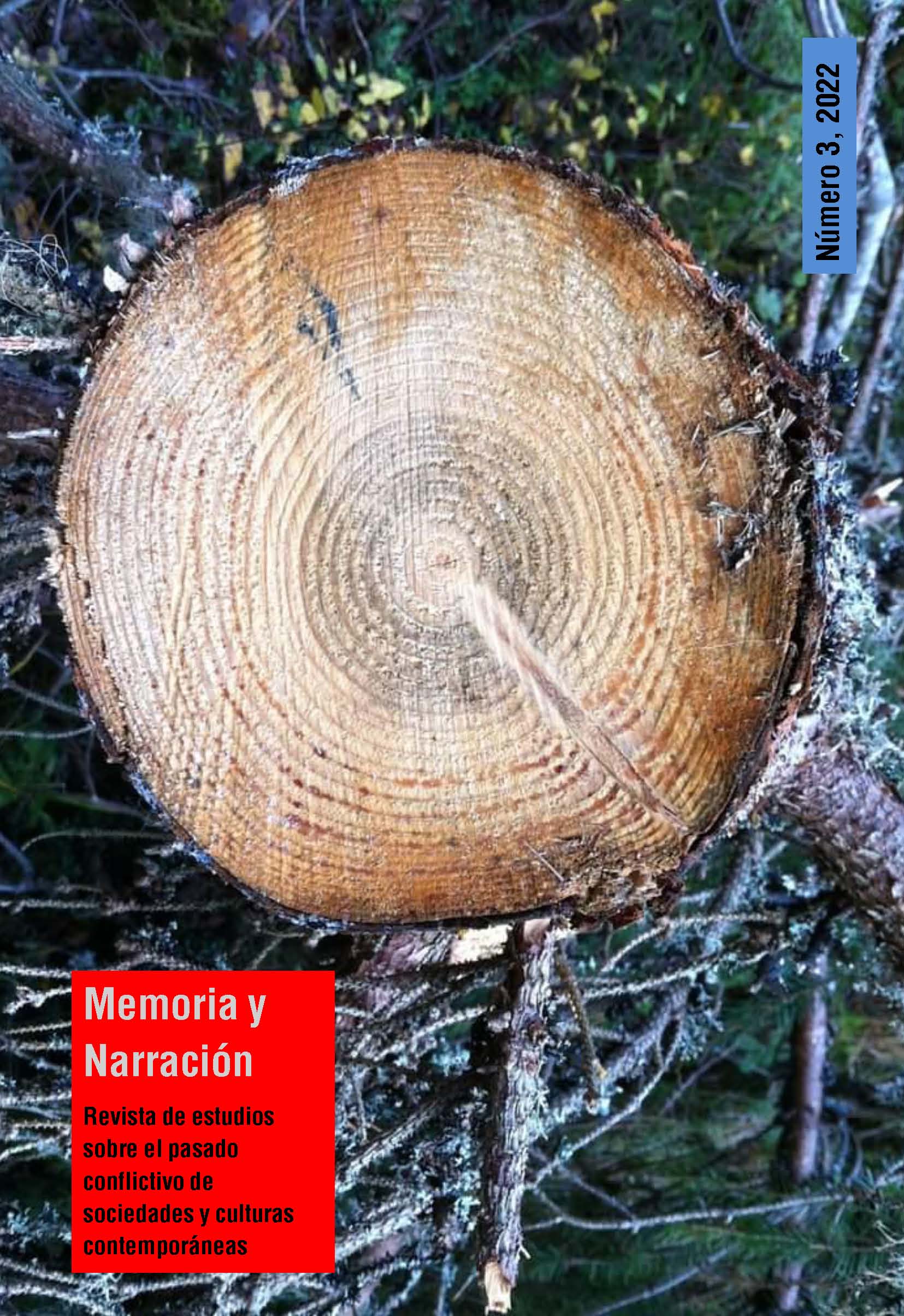The novel Livro de José Luís Peixoto: a post-memory narrative
DOI:
https://doi.org/10.5617/myn.9674Abstract
The novel Livro (2010), says the author, “may be pointed out as the most autobiographical of my books. Paradoxically, it is the less autobiographical, since it tells a story that takes place in a time before I was born. In fact, Livro tells the story, that is not mine, but of my parents: the story of Portuguese migration to France in the 60s. Peixoto’s novel is in this way a work of postmemory (Hirsch 1997), mediated by familiar narratives, images and attitudes and cemented by affection. The imaginative reconstruction of the personal experience allows to inscribe the individual memory into cultural memory and its consequent dissemination. Lastly, the novel’s translation and reception in very different geographies and cultures suggest the universality of the migratory experience narrated in Livro and enables the sharing of memories beyond familiar, ethnic or national bonds. It emerges, in this way, the idea of a common experience, which paves the way to empathy and transcultural memory (Erll 2011, Crownshaw 2011).
This essay aims to analyze the contours of the migratory experience in its social and cultural contexts, integrating in this analysis the strategies that permitted to translate aesthetically the violent past in Livro. And since emotions are crucial to the construction and transmission of memory, those will be also considered.
References
Assmann, Aleida. Der lange Schatten der Vergangenheit. Erinnerungskultur und Geschichts-politik. Munique: C.H.Beck, 2006.
Assmann, Aleida. “Cânone e Arquivo”. Estudos de Memória. Teoria e Análise Cultural. Org. Fernanda Mota Alves, Luísa Afonso Soares, Cristiana Vasconcelos Rodrigues. Vila Nova de Famalicão: Húmus, 2016. 75–86.
Assmann, Jan. “O que é a Memória Cultural?”. Estudos de Memória. Teoria e Análise Cultural. Org. Fernanda Mota Alves, Luísa Afonso Soares, Cristiana Vasconcelos Rodrigues. Vila Nova de Famalicão: Húmus, 2016. 87–116.
Assmann, Jan. “Memória Comunicativa e Memória Cultural”. Estudos de Memória. Teoria e Análise Cultural. Org. Fernanda Mota Alves, Luísa Afonso Soares, Cristiana Vasconcelos Rodrigues. Vila Nova de Famalicão: Húmus, 2016. 117–127.
Crownshaw, Richard. “Perpetrator Fiction and Transcultural Memory”. Parallax 17.4 (2011): 75–89. Web.
“Das Galveias para o Mundo” Reportagem do jornal Público (Ípsilon), 1 de Outubro 2010. Por Isabel Coutinho. Web.
Entrevista ao Jornal SOL, realizada por Rita Freire, 6/11/2014. Web.
Entrevista realizada por Anabela Mota Ribeiro. Originalmente publicado na Revista Máxima em Outubro 2010 Web.
Erll, Astrid, Ann Rigney. “Introduction”. Mediation, Remediation, and the Dynamics of Cultural Memory. Ed. Astrid Erll, Ann Rigney. Nova Iorque: De Gruyter, 2009. 1–14.
Erll, Astrid. “Travelling Memory”. Parallax 17.4 (2011): 4–18. Web.
Hirsch, Marianne. Family Frames: Photography, Narrative, and Postmemory. Cambridge, MA: Harvard University Press, 1997.
Hirsch, Marianne, “A Geração da Pós-Memória” in Estudos de Memória. Teoria e Análise Cultural. Org. Fernanda Mota Alves, Luísa Afonso Soares, Cristiana Vasconcelos Rodrigues. Vila Nova de Famalicão: Húmus, 2016. 299-325
Landsberg, Alison. Prosthetic Memory: The Transformation of American Remembrance in the Age of Mass Culture. Nova Iorque: Columbia University Press, 2004.
Matozzi, Martina. Portugueses de Torna-Viagem. A Representação da Emigração na Literatura Portuguesa. Tese de Doutoramento apresentada ao Instituto de Investigação Interdisciplinar da Universidade de Coimbra, 2016.
Nünning, Ansgar. “A ‘Verdade da Memória’ e o ‘Frágil Poder da Memória’. A Literatura como meio de explorar ficções e enquadramentos da Memória”. Estudos de Memória. Teoria e Análise Cultural. Org. Fernanda Mota Alves, Luísa Afonso Soares, Cristiana Vasconcelos Rodrigues. Vila Nova de Famalicão: Húmus, 2016. 219–244.
Neumann, Birgit. Erinnerung – Identität – Narration. Gattungstypologie und Funktionen kanadischer ‘Fictions of Memory’. Berlim, Nova Iorque: de Gruyter, 2005.
Pereira, Victor. A Ditadura de Salazar e a emigração. O estado português e os seus emigran-tes em França (1957–1974). Lisboa: Círculo de Leitores, 2012.
Reis, Carlos, “A Ficção Portuguesa entre a Revolução e o fim do século” in Scripta, Belo Horizonte, col.8, n. 15, 2ºSem, 2004.
Downloads
Published
Issue
Section
License
Authors who publish in this journal accept the following conditions:
- Authors retain copyright and grant the journal right of first publication with the work simultaneously licensed under a Creative Commons Attribution License that allows others to share the work with an acknowledgement of the work's authorship and initial publication in this journal.
- Authors are able to enter into separate, additional contractual arrangements for the non-exclusive distribution of the journal's published version of the work (e.g., post it to an institutional repository or publish it in a book), with an acknowledgement of its initial publication in this journal.
- Authors are permitted and encouraged to post their work online (e.g., in institutional repositories or on their website) prior to and during the submission process, as it can lead to productive exchanges, as well as earlier and greater citation of published work (See The Effect of Open Access).


